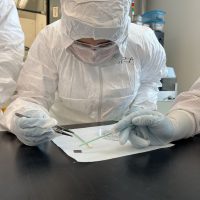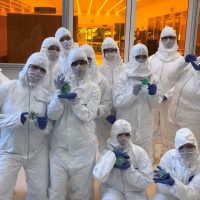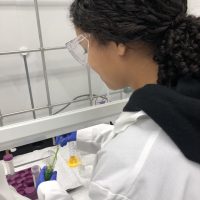There’s a good chance many Middle Tennessee high school kids know more about nanotechnology than you do thanks to the Vanderbilt Institute of Nanoscale Science and Engineering, which has been making strides in its educational outreach for more than a decade.
VINSE’s mission is to drive innovation in science, nanotechnology and education that benefits society.
“We take the immersive education and outreach component of our mission very seriously,” said Sharon Weiss, VINSE director, Cornelius Vanderbilt Professor of Engineering, professor of electrical and computer engineering, and professor of materials science and engineering. “Over the past 15 years, we have positively impacted more than 45,000 students from 26 counties in Tennessee with our nanoscience outreach activities. One of the important components of VINSE K-12 outreach is the VINSE High School Field Trip Program.”
On Oct. 17, the program marked its 200th high school field trip, introducing more than 3,500 regional high school students to the wonders of nanoscience.
During the field trips, students engage in activities such as using blackberry juice to craft solar cells, examining material using a scanning electron microscope, or donning a special gown to work inside the VINSE state-of-the-art clean room.
The field trips started in 2011, with support from TN-SCORE, a state program funded by the National Science Foundation aimed at enhancing energy-related research and education throughout the state. While TN-SCORE funding concluded in 2016, Vanderbilt stepped in with additional support, enabling the program to expand its reach from 10 to 30 schools annually.
VINSE collaborates extensively with about 30 departments across Vanderbilt and Vanderbilt University Medical Center, as well as other academic institutions and industry partners. This interdisciplinary approach extends to their outreach efforts, too.


